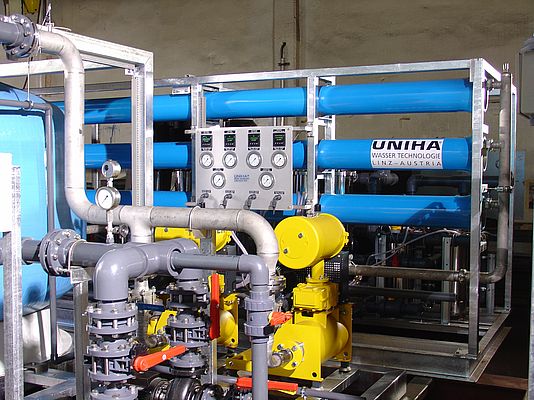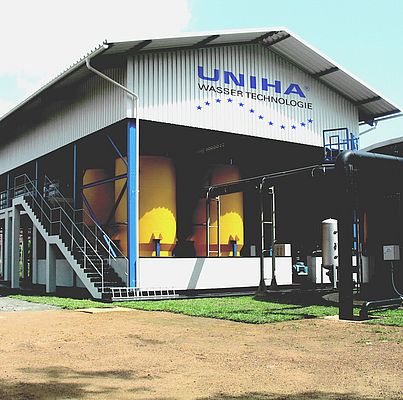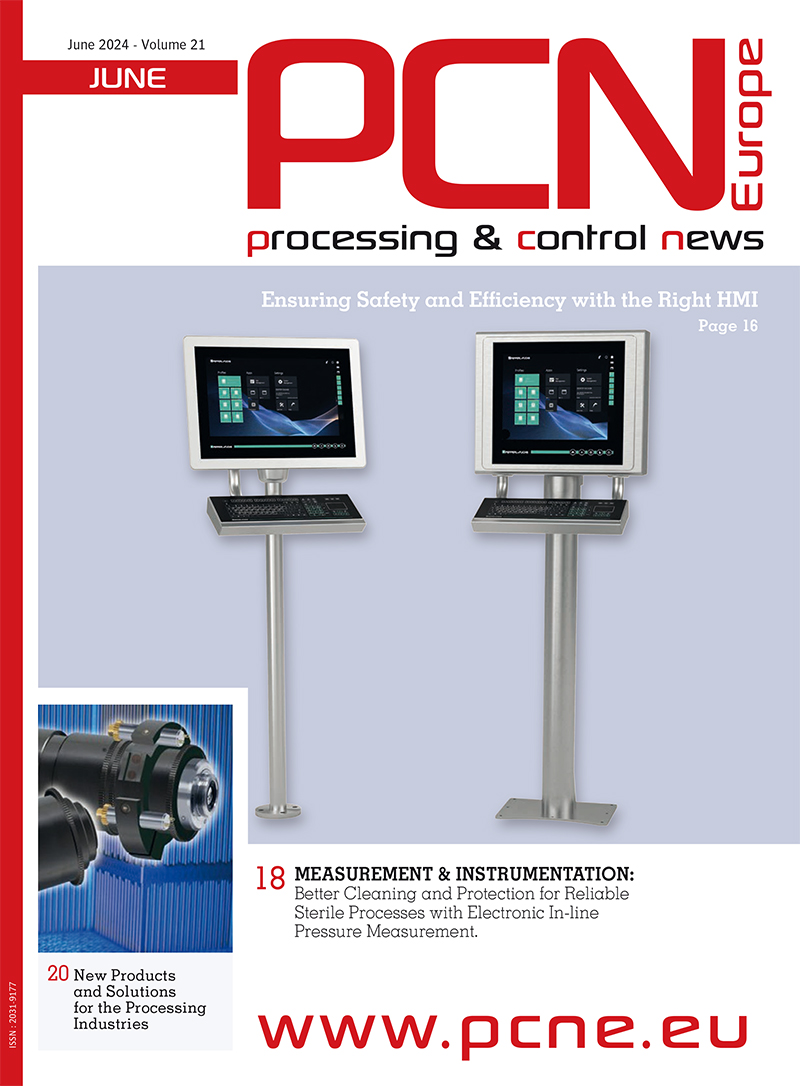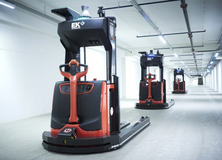UNIHA Wassertechnologie GmbH with headquarters in Linz, Austria, has been awarded contracts for the construction of a total of six water treatment plants in Africa. For these contracts, UNIHA is now getting Lenzing GmbH on board as a main supplier.
UNIHA and Lenzing together will therefore secure a safe drinking water supply for 150,000 individuals with about 23,000m3 of drinking water per day. Work on the four plants in Ghana has shifted into high gear; groundbreaking for the two projects in Egypt is to follow soon. UNIHA has developed process engineering for all six water treatment plants, whereas Lenzing Technik has contributed detailed engineering and assembly services, key technological components and plant engineering.
Although all six plants will produce drinking water, the technologies used are completely different. In Egypt, the drinking water will be produced from seawater using the process of reverse osmosis, whereas in Ghana, it will be obtained from river water by flocculation and sedimentation. In both countries, and for two completely different approaches, UNIHA has won the biddings over international competitors. “If, for instance, we submit a bid that is higher in price than that of an Asian competitor, this must be clearly justified by our technological leadership”, emphasizes Rudolf Ochsner, Managing Partner of UNIHA.
In Egypt, for example, this was the case with a most efficient system for energy recovery in reverse osmosis. The seawater runs through a membrane at a pressure of 70 bars. “The excess pressure is used to drive a pump”, specifies Mr. Ochsner. In order to actually secure the supply of about 100,000 individuals with about 17,000 cubic meters of drinking water a day in Sidi Abdel Rahman and El Arish, UNIHA not only requires reliable project partners, but also watertight financing.
For the water treatment plants in Egypt, Lenzing Technik is now responsible for the manufacture of the entire piping for the reverse osmosis plant, all tanks, cartridge filters and fittings as well as for electrical engineering, and it also supervises plant construction and assembly on site.
In Ghana, it’s not seawater, but river water that is treated in four water treatments plants. In fact, this requires a completely different technology, which has resulted in a large-scale contract with Lenzing Technik: Its engineering experts are responsible for the manufacture and delivery of mixing and agitator tanks, lamella separators, steel construction halls for technical operations as well as for the assembly and commissioning of the plants in Kibi, Apedwa, Kwabeng and Osenase after their completion. “When doing so, Lenzing Technik must totally rely on its expertise as a plant engineering and construction company as well as accomplish a challenging task in terms of construction logistics”, explains Mr. Ochsner. The speed and quality of implementing these demanding projects make Lenzing Technik an ideal partner. “Thanks to this outstanding cooperation we can focus entirely on our core businesses of project initiation, planning and financing as well as the purchase of components.”
“It’s the expertise Rudolf Ochsner’s team has gained in water treatment plants that makes it possible to win international projects for high-wage Austria.” comments Herbert Hummer, Managing Director of Lenzing Technik. As a matter of fact, the 12 UNIHA process engineers, environmental engineers, analytical chemists, mechanical and plant engineers carry out projects mainly in North Africa and Asia, in the Balkans and in the Persian Gulf area. Their customers are local authorities and semi-public utility companies, but also hotel operators and even industrial companies, as the water treatment plants of the Linz-based water technology company do not only produce drinking water, but also water for industrial use.
Safe supply of drinking water
UNIHA Wassertechnologie GmbH with headquarters in Linz, Austria, has been awarded contracts for the construction of a total of six water treatment plants in Africa. For these contracts, UNIHA is now getting Lenzing GmbH on board as a main supplier.UNIHA and Lenzing together will therefore secure a safe drinking water supply for 150,000 individuals with about 23,000m3 of drinking water per day. Work...
- by Lenzing Technik GmbH
- April 17, 2013
- 325 views


















